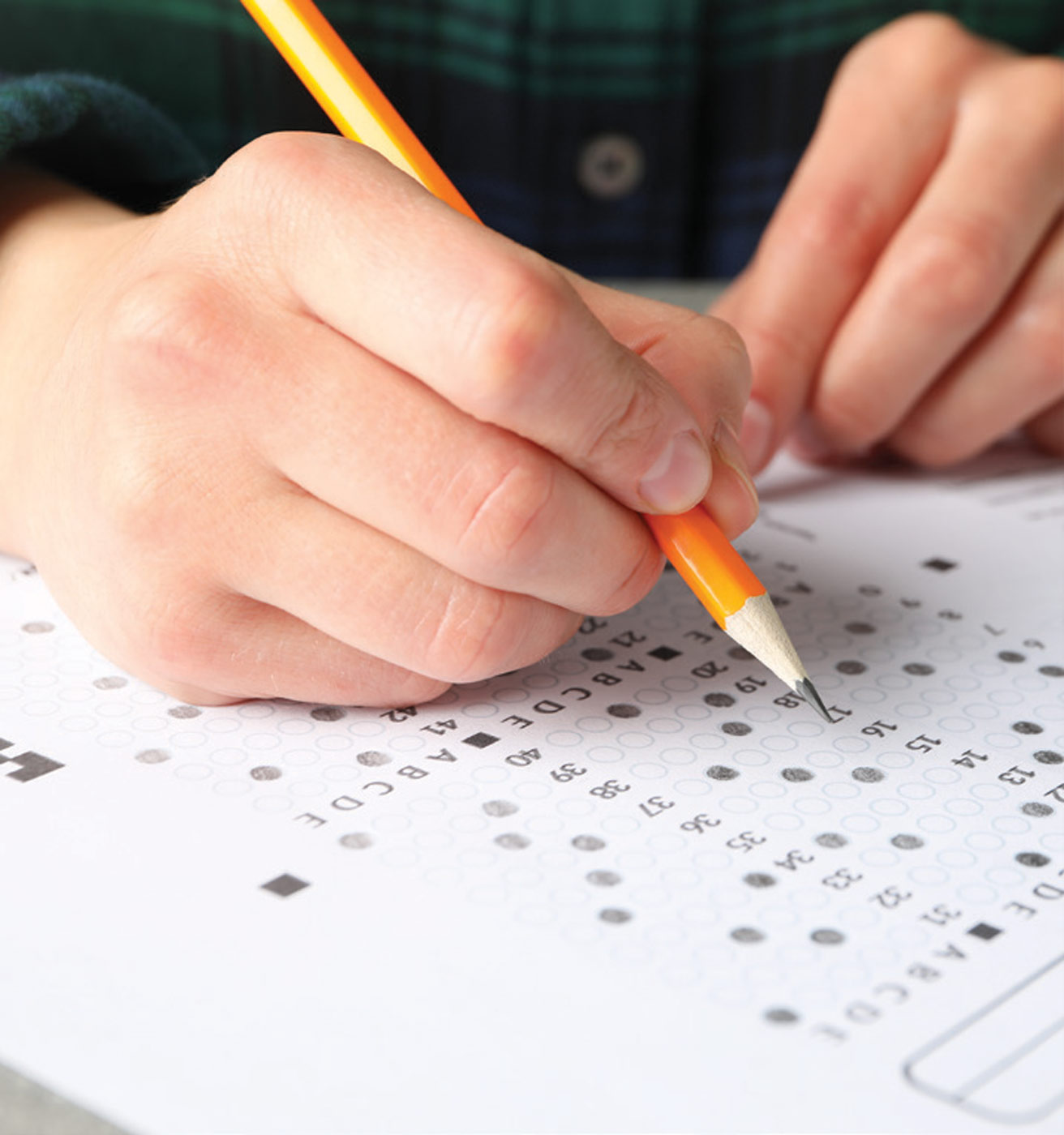GAME CHANGER
By Mitch Hurst
Matthew Pietrafetta, founder and CEO of Academic Approach
By Mitch Hurst
Matthew Pietrafetta, founder and CEO of Academic Approach

A daunting academic challenge for high school juniors—the SAT test—is undergoing some important changes. The College Board, the nonprofit that owns the SAT, is converting the test to a digital format. The test is also undergoing some structural changes that have significant implications for how students will prepare for and take the test.
We caught up with Matthew Pietrafetta, Ph.D., Founder, and CEO of Academic Approach, to get a sense of the SAT changes and their impact on students. Academic Approach is a premier, Chicago-based tutoring and test preparation company that works with students, parents, and schools to advise them on the SAT and other standardized tests.
Pietrafetta says the changes to the SAT are big. The pencil-and-paper PSAT is gone this spring and the last paper-and-pencil SAT will be given in December 2023. Pietrafetta says there are three main reasons the College Board is making the changes: 1) to make the test more equitable; digital tests are easier to deliver and less expensive; 2) to make the test more secure; question randomization and digital security measures will better prevent content leaks and cheating; and 3) to create efficiencies; school administrators will no longer have to worry about processing boxes of tests and bubble sheets, and grading will be done in real time so students get results much faster.
However, it is the impact on students that Academic Approach is thinking through most.

“The Class of 2025, who just took the pencil and paper PSAT this April, will be taking a digital, adaptive PSAT in October,” Pietrafetta says. “These sophomores are, unfortunately, caught in a major moment of change in standardized testing, and it will be up to them to navigate this paper to digital transition. They will need lots of guidance and support.”
From a student’s perspective, the construct, content, and format changes to the SAT matter, and matter differently, student by student.
“Some students benefit from pencil-and-paper problem-solving—annotation techniques, detail-oriented, step-by-step work,” Pietrafetta says. “Some, on the other hand, are digital natives, who can be accurate and efficient when working with digital material. No two students are the same.”
When some express concern for the Class of 2025, Pietrafetta agrees but reminds them that he’s seen significant changes to the ACT and SAT before. The SAT underwent major revisions in 2005, 2016, and now again in 2023. Since 2001, Academic Approach has worked consistently with families and schools through these times of transition to navigate the change. This time is the exactly same—Academic Approach already has digital SAT-specific materials and instruction in place.
Academic Approach has a Department of Education that generates curriculum and assessments as well as a Technology Department that administers all content digitally. The company has been administering digital assessments with schools for many years, so these SAT changes are not a surprise.
“We’ve already digitized our curriculum and are continuing to expand our suite of digital SATs,” Pietrafetta says. “We’re ready, and we’re excited to already be working with schools to help them transition their instruction to support this new test-taking experience.”
Pietrafetta says that, given the changes to the SAT, the first thing to focus on is practice testing, especially for the high school class of 2025.
“We’re looking closely now at the new cohort of students coming in—gathering diagnostic data, analyzing the differences among students, and offering consultations on our findings.”
Now that the digital SAT will be so different from the paper-and-pencil ACT, Pietrafetta says that determining which test will best suit your student is more important than ever.

“You want to analyze your student’s performance on both tests and personalize your student’s approach,” he explains. “The shared knowledge from the past has reached its shelf-life.”
Ultimately, it is crucial for parents and students to learn as much about the changes to the SAT as possible.
“We understand how overwhelming changes to the tests can be for families,” Pietrafetta says. “We’re here to lift some of that burden and share our expertise.”
The bottom line, he says, is “It’s a different landscape for Class of 2025. It’s not the same test that your older siblings took. You can’t rely on the same preparation that your nextdoor- neighbor used. The game has changed. Students need to be prepared to play.”
For more information about Academic Approach, call 847-796-6158 or visit academicapproach.com, where a human-staffed chat is also available.
Sign Up for the JWC Media Email